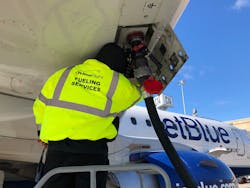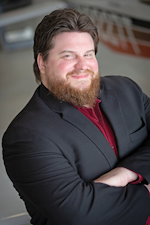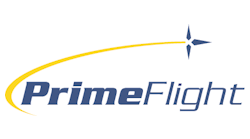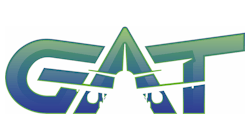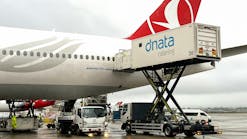A year ago, COVID-19 turned the world on its head overnight. What was the “new normal” is now just normal as the world enters the second year of the crisis.
Part of that normal is personal protective equipment (PPE), which has become a household term.
For those who make their living on the ramp, PPE is nothing new – from hearing protection to high visibility vests – the gear has always been there. What wasn’t there before were the masks, electrostatic sprayers and more that will likely continue to be utilized long after the pandemic is gone.
Prior to the pandemic, Mary Marietta, executive vice-president of human resources for GAT Airline Ground Support, says workers utilized standard PPE within the scope of their jobs, with their lavatory agents having the most extensive equipment – face shields and screens, gloves and jackets and coats that repel any type of waste. Now, the scope’s grown for everyone.
“We've significantly changed our approach, our metrics,” Marietta says of their post-COVID changes. “We have masks that have been sent out to all of our frontline agents, every single operator within the field – we have 47 locations within the US and 3,000 employees. We provided two washable masks that can be used that are required for all of our agents in the station. We have disposable gloves for all of our agents, as well.”
Wayne Ingle, VP of safety and operational support at PrimeFlight Aviation Services, says they too have mandated face coverings for all staff.
“We have seen an increased consumption with team members changing them approximately every four hours. In addition, we have seen an increased consumption of anti-absorption gloves. Use has skyrocketed with employees changing them more frequently between tasks to prevent inadvertent face touching. There has been a drastic increase in consumption of vapor masks, N95/P95, which includes the introduction of new tasks that require respiratory protection such as air ionization,” Ingle says.
Like GAT, PrimeFlight also had assigned PPE based on job responsibilities before the pandemic, including vests, hearing protection, protective work gloves, safety shoes, knee pads, face and eye protection, aprons and disposable coveralls, fall protection and welding protection.
In addition to masks, there are new day-to-day sanitization and disinfection protocols employees are following.
“When our cabin cleaners are going through and sanitizing the plane, they have disposable gloves that they have to wear. There are specific temperature check policies that we put in place, symptom checking policies that we have for all of our agents, that we're tracking and monitoring on a regular basis. For the cabin cleaners, the disposable gloves, hand sanitizer at every open location for them, we have a very strict handwashing policy for all those folks,” Marietta says.
“We have also added hand sanitizer to all work areas for immediate cleansing after glove removal and any surface contact. The same can be said for use of disinfectants, with use skyrocketing for more frequent wipe-downs of all surfaces in work and common areas as well as shared equipment,” echoes Ingle.
Protection on Another Level
As Al Mantilla, project manager at AccuFleet International, Inc., describes, COVID-19 hasn’t just changed PPE requirements, but it has changed the whole way ground service providers think about personal safety.
“Virus protocol is now added to the list of issues to be mindful of on the ramp. We value being a safe organization and beyond preventative measures this also includes the mindset of our team,” he says, adding that there’s been a heightened awareness around face coverings.
Ingle says the pandemic has “absolutely” changed the way they think about PPE and hygiene practices, in general.
“We have seen this particularly with our below-the-wing team members. There is an increased awareness related to germs and bacteria not only in the workplace, but in all aspects of life,” Ingle adds. “The pandemic has raised an overall awareness, for the public at large, of the need for better hygiene practices.”
With this new focus, personal protection is extending beyond just what an employee can wear but is taking the fight to the virus with disinfectants. GAT’s cabin cleaners have been employing an electrostatic sprayer to disinfect aircraft cabins. The sprayers are also employed in general and common areas.
“When they go into these aircraft and there's been an exposure, we have electrostatic foggers that they would use to sanitize the aircraft and the cabin. Same in any of our general areas. When they use that, there are jackets and pants that are protective, and also, again, repel any type of fluids or liquids that they would potentially be exposed to. They have face shields for the cabin cleaners that they use on a regular basis, plus the masks that they would use as well. That's a little bit different than the normal day-to-day ramp agent, cargo agent, etc., because they're more exposed to the risk of contracting the illness,” says Marietta.
Ingle adds that PrimeFlight has seen an increase in aircraft and facility fogging and adds the company is also introducing a line of UV surface disinfection units tailored to the aviation industry.
“As a service company, our goal has continued to be to get our employees back to work,” Ingle says.
“Our patent-pending PrimeFlightUV units, ranging from wheelchair and security bin disinfection units to aircraft sprayers are aimed at giving passengers peace of mind and helping to protect front line workers as we all work to get the industry back to pre-COVID levels,” he adds.
Marietta points out that it’s important for employees to take protection measures when off their worksite as well. Given the virus’ easily transmissible nature and despite the best worksite efforts, it can be easy for an employee to be lax with personal hygiene and pandemic best practices. Likewise, an employee may encounter someone else who is lax, and bring in the virus from the grocery store or their home.
“I would say that, just in general life, people who are not working aviation, people who aren't working as ground handlers, PPE in our daily lives with COVID is just so essential right now. We know COVID is not done yet. We're hoping that with continued, as they say, herd immunity and continued vaccinations, we're going to be able to see a decrease here, but we're in the throes of it right now so everyone has got to social distance, wash hands, wear your masks out in public every time, no exceptions. These are critical components right now that are going to help us to defeat this and help minimize the cases that are happening right now,” she says.
“It may be uncomfortable and it may not be something that everyone wants to do or enjoys doing right now, but it's essential for us to get past this.”
The Not so New Normal
The big question, of course, is what is here to stay? Ingle says that it’s still too early to say for certain what practices and equipment will remain mainstays of the industry post-pandemic, though he guesses many are going to stay permanent fixtures.
“We expect that some of these changes in PPE and cleaning practices to remain for some time, if not indefinitely. However, it is still too early to gauge the long-term effects that COVID-19 will have on our industry and workplace practices,” he says.
Mantilla estimates that COVID-19 has changed the aviation industry forever, with the focus on hygienic best practices and preventative measures now part of its foundation – if even just to ease passengers’ fears.
“I would imagine that the effects will stick with the industry for some time. As a company we emphasize safety for our team members. We anticipate that aviation, as a whole, will require PPE and preventative measures to collectively increase the visibility of efforts being made to our passengers and customers,” Mantilla explains.
“From our perspective, we plan on implementing this going forward indefinitely. Even with the vaccine, which we're of course thrilled about and we're encouraging as many team members as possible to get vaccinated to keep them and their fellow team members safe, we still don't foresee this completely going away for months and months and months,” says Marietta. “In our minds, there's going to be no changes in the near future or the distant future. We plan on implementing these practices going forward, period.”
